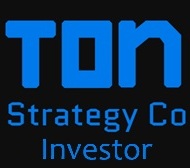(Total Views: 419)
Posted On: 03/04/2021 9:14:06 AM
Post# of 33179
A few more things to add...
1.) They say that timing is everything. Why did it take me more than two years to find this? Has it been declassified recently or am I pretty slow with google?
I think I know. See #2
2.) "We expect to see other large scale partnership plays announced this year."
How many more advisors are there from big name companies not public yet? If there are more, you can't make them public without tipping your partnership hand. See the Microsoft example in #1
3.) As an employee of a big corporation you can't just be on anybody's board you want. Somethings have to happen.
a.) You were a board member before you joined the company and you disclosed it during the hiring process. This is not the case with Microsoft since they've been there almost 8 years.
b.) You find another company or they find you and want you to be on your board. You would have to go back to your full-time job and ask permission to be on their board. There are a number of reasons.
I.) They pay you full-time and for a lot of jobs, that isn't 9-5 especially in tech. They may not want you splitting your full-time-ness with other companies.
II.) The company could be a conflict of interest or a competitor
III.) There may be concerns you disclose inside knowledge or trade secrets
c.) The company you work for asked you to be on the advisory board
#1, #2, and #3c are very realistic when you consider them together
But wait, there is more...
4.) You don't do #3c unless there is a close partnership and something significant going on. You just don't.
What you typically do is say... "I got this great person that can help you and BTW, they are $350/hr.". Remember Microsoft gets a lot of revenue from the consulting services.
And there's more...
5.) A big company like Microsoft could embed people on a board for a number of potential reasons
a.) They were really interesting in leveraging the technology, want it accelerated and done right
b.) You were interested in an acquisition long term

1.) They say that timing is everything. Why did it take me more than two years to find this? Has it been declassified recently or am I pretty slow with google?
I think I know. See #2
2.) "We expect to see other large scale partnership plays announced this year."
How many more advisors are there from big name companies not public yet? If there are more, you can't make them public without tipping your partnership hand. See the Microsoft example in #1
3.) As an employee of a big corporation you can't just be on anybody's board you want. Somethings have to happen.
a.) You were a board member before you joined the company and you disclosed it during the hiring process. This is not the case with Microsoft since they've been there almost 8 years.
b.) You find another company or they find you and want you to be on your board. You would have to go back to your full-time job and ask permission to be on their board. There are a number of reasons.
I.) They pay you full-time and for a lot of jobs, that isn't 9-5 especially in tech. They may not want you splitting your full-time-ness with other companies.
II.) The company could be a conflict of interest or a competitor
III.) There may be concerns you disclose inside knowledge or trade secrets
c.) The company you work for asked you to be on the advisory board
#1, #2, and #3c are very realistic when you consider them together
But wait, there is more...
4.) You don't do #3c unless there is a close partnership and something significant going on. You just don't.
What you typically do is say... "I got this great person that can help you and BTW, they are $350/hr.". Remember Microsoft gets a lot of revenue from the consulting services.
And there's more...
5.) A big company like Microsoft could embed people on a board for a number of potential reasons
a.) They were really interesting in leveraging the technology, want it accelerated and done right
b.) You were interested in an acquisition long term


